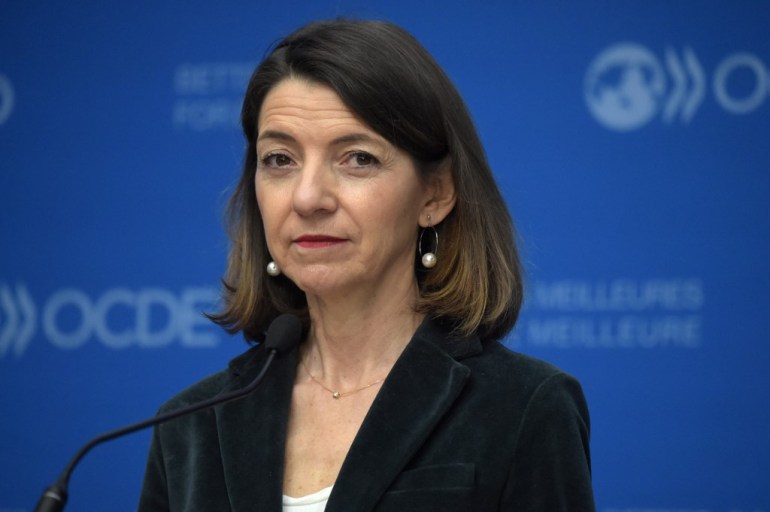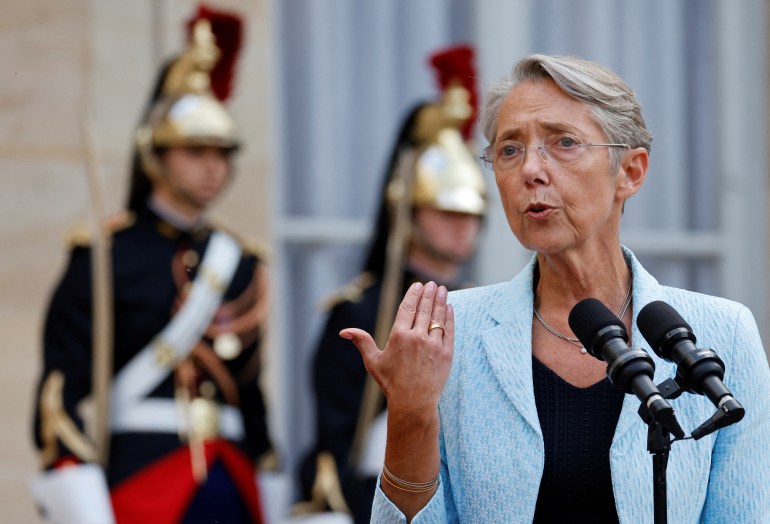Macron reshuffles cabinet after losing parliamentary majority | News

Macron reshuffles his government after his ruling alliance failed to win a parliamentary majority last month.
French President Emmanuel Macron has reshuffled his government after his centrist ruling alliance failed to win a parliamentary majority last month.
The president on Monday made several key changes to high-profile positions and finally ceded to public pressure by removing Damien Abad, the solidarity and social cohesion minister, who is currently facing a rape investigation.
French Red Cross director Jean-Christophe Combe was nominated to replace Abad, who has firmly denied accusations linked to sexual misconduct made by several women against him through the press.
In a surprise move, chief economist of the Organization for Economic Cooperation and Development (OECD) Laurence Boone was named the new Europe minister in place of Clement Beaune, who had played a key role in negotiations with the United Kingdom over Brexit.

In another key change, Christophe Bechu, mayor of the Loire city of Angers and a key ally of former Prime Minister Edouard Philippe, was named environment minister in lieu of Macron loyalist Amelie de Montchalin, who stepped aside after losing the battle for her seat in the parliamentary elections.
Olivier Veran, who was the face of the crisis throughout most of the pandemic coronavirus, was put in charge of presenting government policy after moving from health to a different cabinet role in May.
Lost majority
While Macron’s ruling alliance won the most seats in the June 19 parliamentary polls, it lost the majority and will now need to build coalitions to push legislation through parliament.
Monday’s reshuffle stopped short of being a major renewal that could turn Macron’s fortunes around. Key roles such as the prime minister and finance minister remained unchanged.
Frederic Says, a political commentator for broadcaster France Culture, said on Twitter that Macron’s move was “a message to the troops: loyalty will be rewarded. Looking ahead to the coming months, when votes on new laws are likely to come down to just a few votes. ”
Communist Party chief Fabien Roussel told broadcaster LCI that the reshuffling “feels like they’re just starting over again with the same people”.
A first test for the new government will come on July 6, when Prime Minister Elisabeth Borne will lay out her policies before parliament.

Borne could call a high-stakes confidence vote after the speech. The left-wing opposition has said it will call a no-confidence vote if she does not.
Macron beat far-right leader Marine Le Pen a second time in April’s presidential run-off to win a new five-year term.
Last month’s parliamentary vote saw Macron’s Ensemble fall 39 seats short of the absolute majority needed to push through new laws.
Macron has not announced any coalition pact with other parties to build a workable majority nor poached any key names from the opposition.
Opposition forces have ruled out any formal coalition, leaving the government to glean support where it can as bills come up for the vote.
French newspaper Le Monde complained of Macron’s “presidential hesitations” and “ideological vagueness”, adding that “since yesterday he opposed ‘imperfect compromises’, from now on the president will have to resign himself to them”.
